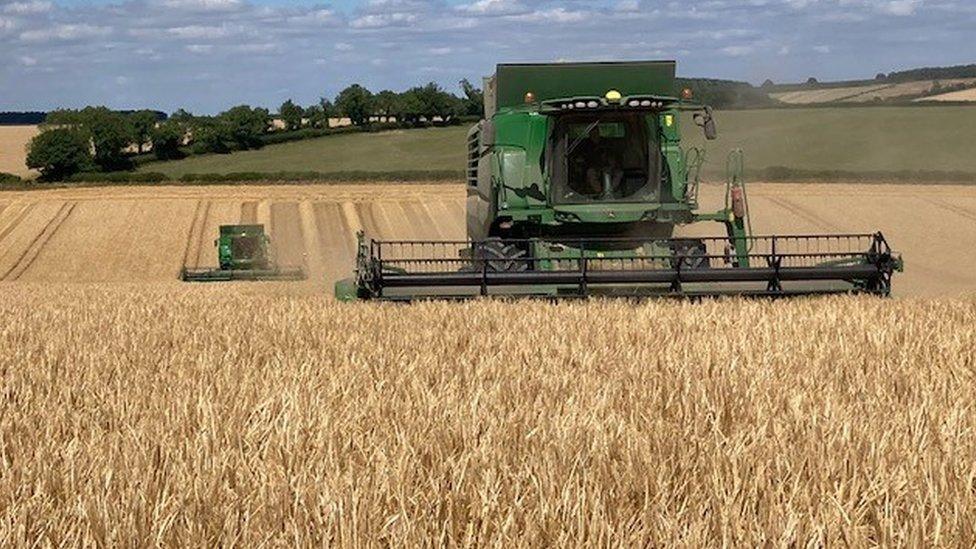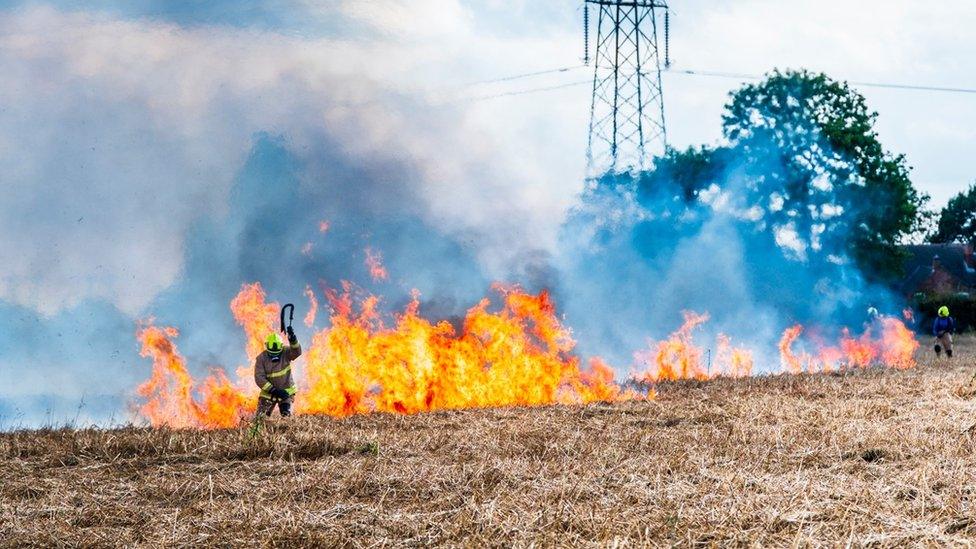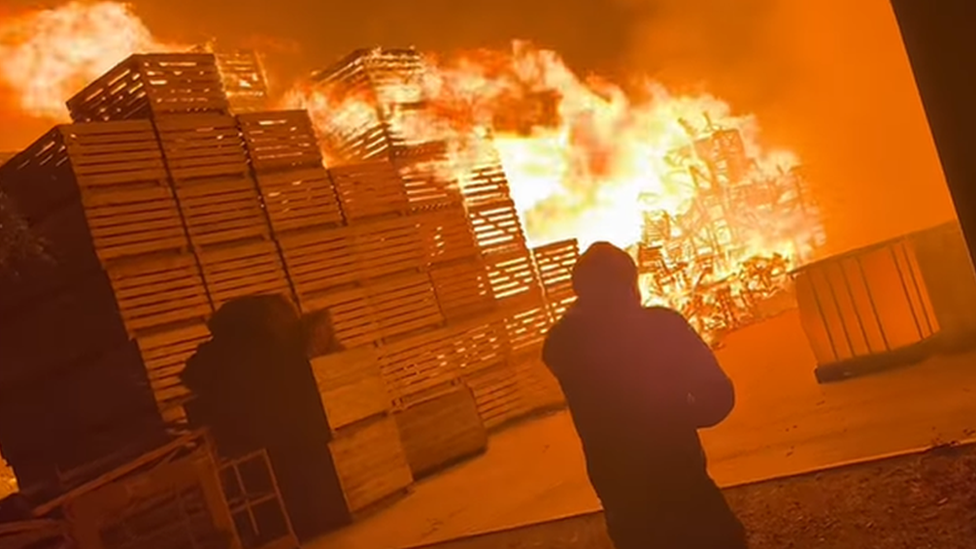UK heatwave: Fire risk to farmers harvesting in extreme heat
- Published

Dorset farmer James Cossins at work harvesting winter barley on his 2,000 acre farm in Blandford Forum
Farmers are working to reduce the risk of fires during the heatwave as they harvest their crops during the hot weather.
Dorset farmer James Cossins has a 2,000 acre (809 hectare) mixed farm near Blandford Forum.
Dry and dusty conditions increase the risk of fire to farmers as they gather their crops.
One insurer saw a 35% increase in combine harvester fire claims during the 2021 harvest.
NFU Mutual provides cover for three quarters of the UK's farms.
Mr Cossins said his farm, where he has dairy and beef cattle along with wheat, barley and oilseed rape, was "particularly vulnerable" to fire presently.
"We've got a slurry tanker that we fill with water so we have our own mini fire engine and we use a cultivator that disturbs the soil to make a firebreak," he said.
Keeping the equipment clean and "blowing the dust off" at the end of the day was essential to preventing fire, he added.
"In Dorset we get heath fires too so we have to look after the environment, we have to keep our machinery maintained well," he said.

A firefighter tackles a crop fire in hot, dry conditions
NFU Mutual said insurers had already been informed of more than 400 fires involving farm machinery this year at a total cost of over £15m.
Mr Cossins said the changing climate was forcing him to consider new crops.
"We're looking at growing herbal leys, all being well, which you don't need to put fertiliser on and which are drought-resistant," he said.
Hannah Cloake, Professor of Hydrology and a natural hazards researcher at Reading University, said farming had become "really difficult", not just in terms of heat and fire risk, but with flooding too.
"There's a limit - drought-resistant crops are fine up to a point but they won't solve everything.
"Farming will still be impacted by events, I think we need to think outside the box, but it's good they're borrowing techniques to stop fires happening before someone's field catches alight," Professor Cloake said.
"A lot of farmers are thinking ahead, particularly when they are susceptible to natural hazards which are coming from all directions," she added.

Follow BBC South on Facebook, external, Twitter, external, or Instagram, external. Send your story ideas to south.newsonline@bbc.co.uk, external.
- Published5 June 2022
